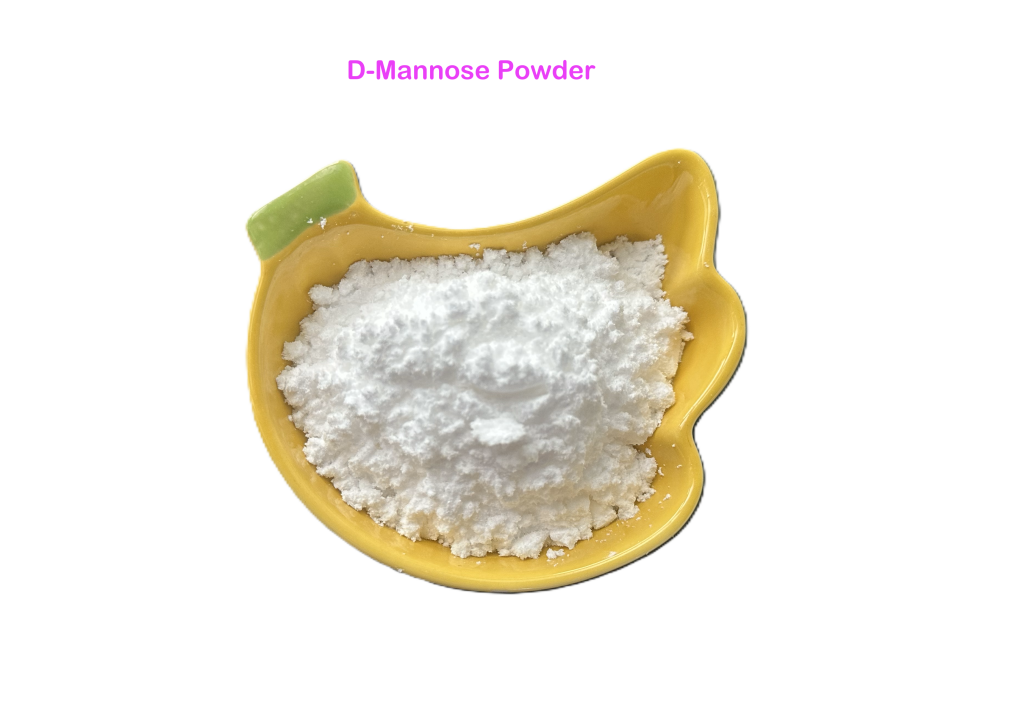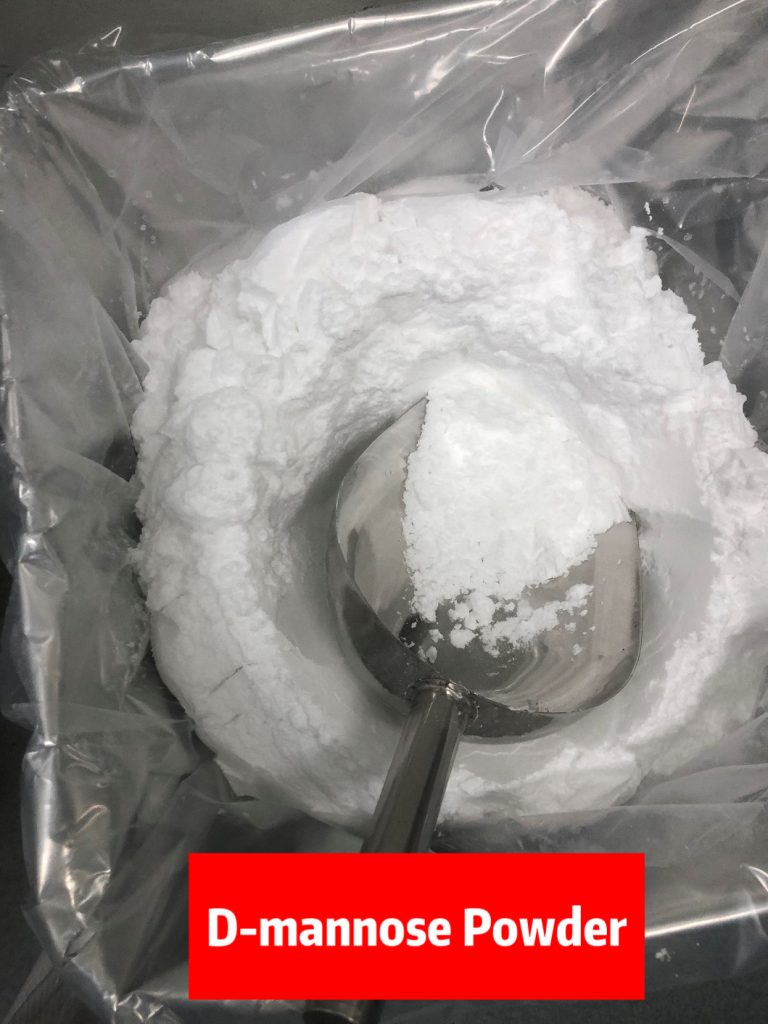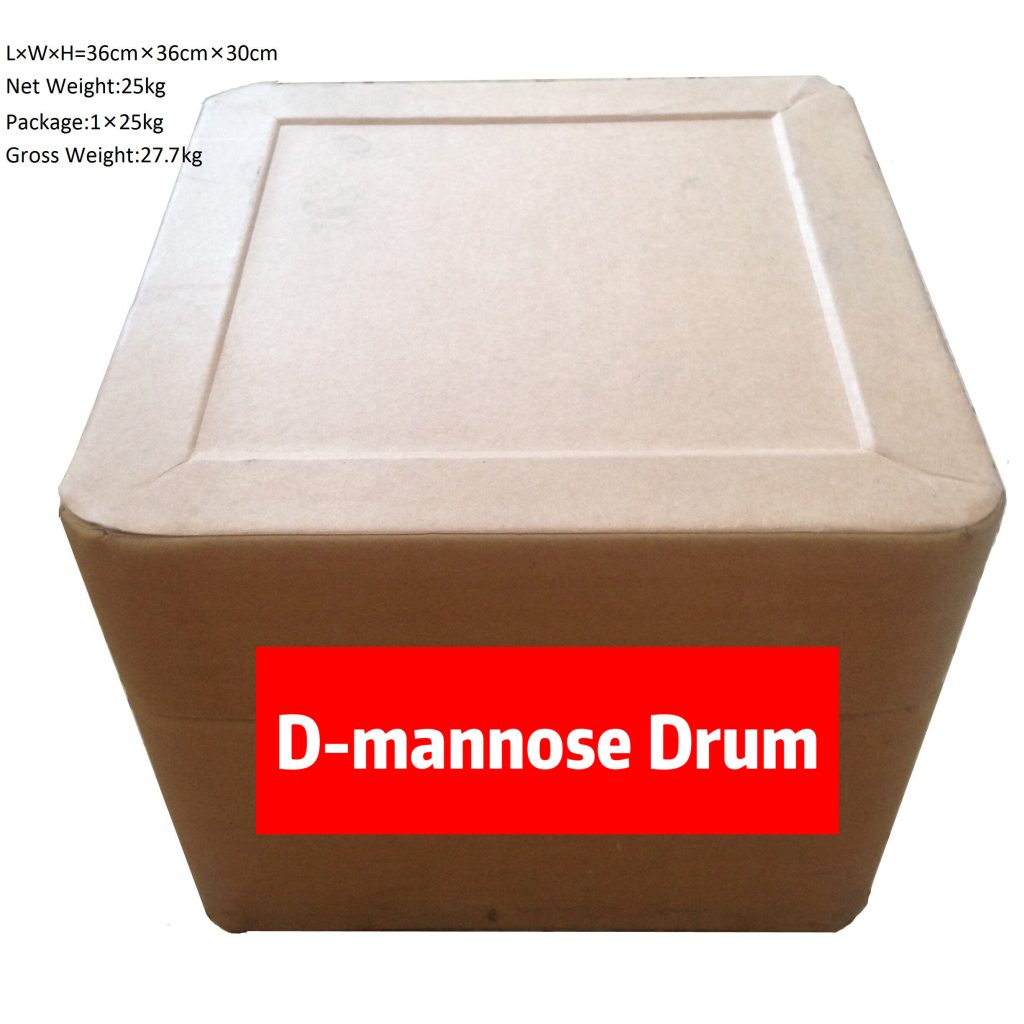What’s D-mannose powder?


D-mannose powder is a type of simple sugar that’s related to glucose. Both sugars occur naturally in your body and some plants in the form of starch.
Some people use it to treat and prevent urinary tract infections (UTIs), as it may reduce the number of certain bacteria that cause UTIs.
Keep reading to learn about D-mannose, its potential benefits and side effects for treating UTIs, and how to use it.
Sources of D-mannose powder
Natural sources can be from birch trees, palm kernels, potato, corn or fruits such as cranberries and pineapples. Synthetic sources such d-fructose or d-glucose or pure starch through bio-conversions are inexpensive starting materials and widely available.
The production of D-mannose can also introduce additives, in particular if taken in capsule form. Silica, magnesium stearate, rice flour, artificial sweeteners and heavy metals can all be included as bulking agents or form the body of an individual tablet. This ensures cheaper mass production. Do your research first especially if you have allergy issues or are following a preferred regime of avoidance such as soy, gluten or GM products.
Sadly sometimes price does reflect quality of manufacture and purity of product so buyer beware.
When researching a brand look at the amount of pure D-mannose in each pot or tablet. The higher the better. A teaspoon of powder should offer around 2000 mg and a tablet around 500mg. And remember Cranberry products are not the same as D-Mannose. Cranberry extract and juice has been shown not to be effective against recurrent and chronic UTI.
D-mannose powder for UTIs
Some research suggests that D-mannose powder may play a part in treating active UTIs and preventing them from developing in the future.
Indeed, a 2022 study found that D-mannose effectively treated acute uncomplicated UTIs and prevented recurrent UTIs, with similar results to antibiotics, in several studies.
Researchers tested whether it could help prevent recurrent urinary tract infections (UTIs) in women with frequent UTIs. Two groups were randomly given d-mannose or a placebo and monitored for six months. However, 51% of the women taking d-mannose and 56% of those taking the placebo still contacted their doctor for UTI treatment during the study.
Ultimately, the findings about D-mannose are inconsistent and more studies are necessary to determine whether it is a useful treatment for UTIs. Without these studies, it is not clear what the dosage of D-mannose should be or whether it may interact with other medications or cause side effects.
Health Benefits of D-Mannose
Helps Treat CDGS Type 1b
D-mannose can help treat a rare genetic disorder called carbohydrate-deficient glycoprotein syndrome type 1b because people with this condition don’t produce enough, or any, mannose naturally.
May Help Prevent Urinary Tract Infections
Over 50% of adult women will get a UTI in their lifetime, making UTIs the most common type of outpatient infection.
The infection is typically treated with antibiotics, but researchers are interested in D-mannose as an alternative treatment that won’t promote the growth of antibiotic-resistant bacteria.
May Promote Gut Health
D-mannose powder may also act as a prebiotic—a dietary fiber that feeds the good bacteria in your gut. Bacteria in the large intestine ferment (break down) prebiotics, helping good bacteria thrive, producing beneficial short-chain fatty acids, improving the integrity of your gut lining, and boosting immune health.
Unlike glucose and fructose, D-mannose is a sugar that may reduce rather than increase inflammation in the gut.
In rodent-based studies, D-mannose powder increased the Bacteroidetes to Firmicutes ratio in the gut, which is notable because low levels of Bacteroidetes are linked with inflammatory bowel disease (IBD).
Dosage
Due to the lack of research to date, it is difficult to determine either the right dosage of D-mannose powder or the form in which people should take it.
It is likely that the correct dosage for treating an active UTI will differ from that for preventing UTIs from recurring.
Some studies indicate that a dose level of 0.2 g/kg of body weight seems to be the upper limit for daily consumption of D-mannose for long-term use, as higher doses may cause gastrointestinal disturbances.
Package of D-mannose powder



